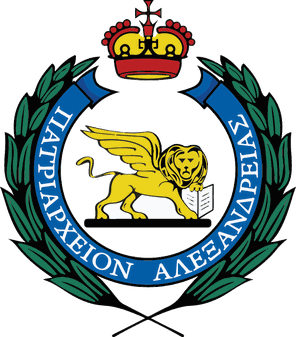
The Catholic Church in Kenya is part of the worldwide Catholic Church, under the spiritual leadership of the Kenyan Conference of Catholic Bishops and the Pope in the Vatican City.

The Anglican Church of Kenya (ACK) is a province of the Anglican Communion, and it is composed by 41 dioceses. The current Leader and Archbishop of Kenya is Jackson Ole Sapit. The Anglican Church of Kenya claims 5 million total members. According to a study published in the Journal of Anglican Studies and by Cambridge University Press, the ACK claims 5 million adherents, with no official definition of membership, with nearly 2 million officially affiliated members, and 310,000 active baptised members. The church became part of the Province of East Africa in 1960, but Kenya and Tanzania were divided into separate provinces in 1970.
The Anglican Church of Tanzania is a province of the Anglican Communion based in Dodoma. It consists of 28 dioceses headed by their respective bishops. It seceded from the Province of East Africa in 1970, which it shared with Kenya. The current primate and archbishop is Maimbo Mndolwa, enthroned on 20 May 2018.
Zuglio is a comune (municipality), former bishopric and Latin Catholic titular see in the Regional decentralization entity of Udine in the northeastern Italian autonomous region of Friuli-Venezia Giulia, located about 110 kilometres (68 mi) northwest of Trieste and about 45 kilometres (28 mi) northwest of Udine, in the Val Bût.

The Greek OrthodoxPatriarchate of Alexandria and all Africa, also known as the Greek Orthodox Church of Alexandria, is an autocephalous patriarchate that is part of the Eastern Orthodox Church. Its seat is in Alexandria, and it has canonical responsibility for the entire African continent.

The Roman Catholic Archdiocese of Nyeri is the Metropolitan See for the ecclesiastical province of Nyeri, one of four in Kenya, Eastern Africa, yet depends on the missionary Roman Congregation for the Evangelization of Peoples.

John Njue is a Kenyan Cardinal of the Catholic Church. He was the fourth Archbishop of Nairobi from 2007 to 2021. He previously served as Coadjutor Archbishop of Nyeri from 2002 to 2007 and Bishop of Embu from 1986 to 2002. He was elevated to the rank of cardinal in 2007.
Mathira Constituency is an electoral constituency in Kenya. It is one of six constituencies in Nyeri County. The constituency was established for the 1963 elections. Mathira is popularly known as Mathira ya Githomo (education) due to a significant number of an educated population in the country. It sits at the foot of Mount Kenya, creating a conducive climate for growing tea and coffee. Karatina is to the east of Mathira constitution. Several tarmac roads criss-cross Mathira, including the Kenol-Marua superhighway.
The Military Ordinariate of Kenya is a Latin Church ecclesiastical jurisdiction or military ordinariate of the Catholic Church. Immediately exempt to the Holy See, it provides pastoral care to Catholics serving in the Kenyan Armed Forces and their families.

The black bishop is a species of passerine bird in the family Ploceidae native to Africa south of the Sahara. Three subspecies are recognised.
Benjamin Paul Mwanzia Nzimbi is a Kenyan Anglican archbishop. He was the archbishop and primate of the Anglican Church of Kenya and Bishop of the Diocese of All Saints Cathedral, from 2002 to 2009. He is married to Alice Kavula and the couple has five children.
David Mukuba Gitari was a Kenyan Anglican archbishop. He was the third primate and archbishop of the Anglican Church of Kenya, from 1997 to 2002, and at the same time, Bishop of the Diocese of Nairobi. He was married to Grace Wanjiru, since 1966, and they had three children.
The Institute of Consolata Missionaries, commonly called the Consolata Missionaries, is a Catholic religious congregation of Pontifical Right with branches for both men and women. Its members add the nominal I.M.C. after their names to indicate membership in the Institute.
The Anglican dioceses of Mombasa are the Anglican presence in and around Mombasa and south-east Kenya; they are part of the Anglican Church of Kenya. The remaining dioceses of the Church are in the areas of Maseno, of Mount Kenya, and of Nakuru.
The Anglican dioceses of Maseno are the Anglican presence in and around Maseno, the Winam Gulf of Lake Victoria, and the western slopes of Mount Elgon, south-west Kenya; they are part of the Anglican Church of Kenya. The remaining dioceses of the Church area in the areas of Mombasa, of Mount Kenya, and of Nakuru.
The Anglican dioceses of Mount Kenya are the Anglican presence in east-central, north and north-east Kenya; they are part of the Anglican Church of Kenya. The remaining dioceses of the Church area in the areas of Mombasa, of Maseno, and of Nakuru.
The Anglican dioceses of Nakuru are the Anglican presence in and around Nakuru, west-central, north-east and south-central Kenya; they are part of the Anglican Church of Kenya. The remaining dioceses of the Church area in the areas of Mombasa, of Maseno, and of Mount Kenya.
Robert David Markland (Rob) Martin was the first Bishop of Marsabit in the Anglican Church of Kenya.
Obadiah Kariuki (1902–1978) was an Anglican bishop in Kenya during the last third of the twentieth century. [Kenya Gazette]] 10 August 2007





